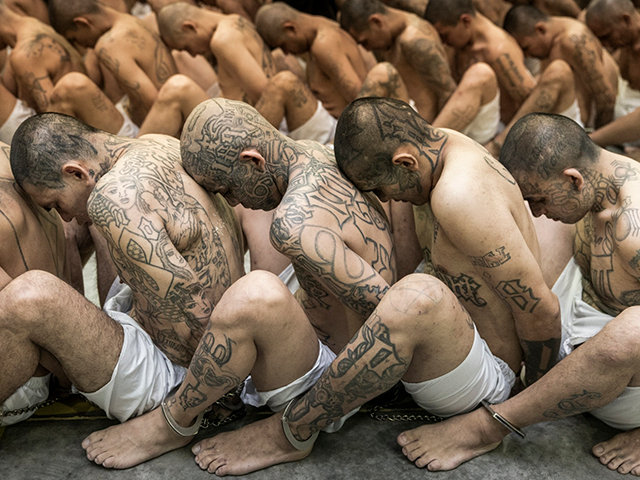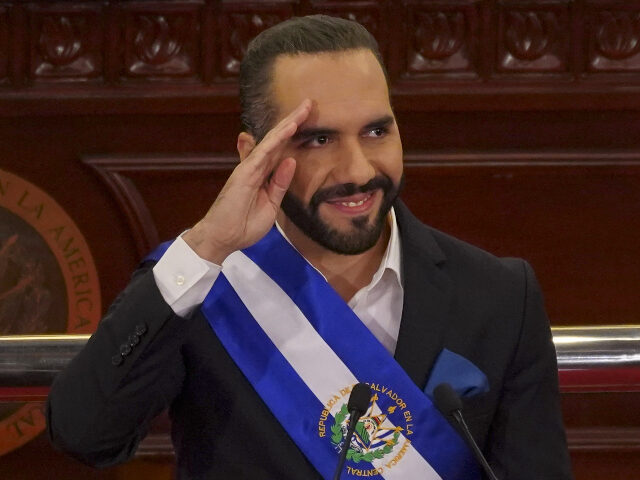El Salvador’s President Nayib Bukele cheerfully brushed off criticism from embattled U.S. Rep. Ilhan Omar (D-MN) on Wednesday, saying he and his country were “honored” to receive her attacks “just days before OUR election.”
“I would be very worried if we had your support,” Bukele told Omar:
Bukele was responding to a message Omar posted on Twitter trumpeting that she “led Members of Congress in sending a letter to Secretary of State Antony Blinken urging action on threats to democracy in El Salvador.”
“The State Dept must review its relationship with El Salvador and defend democratic values. The Salvadoran people deserve free and fair elections without fear of repression,” Omar pontificated.
Amusingly, readers of Omar’s post immediately slammed her with fact checks pointing out that El Salvador does have free elections, Bukele and his party won them fairly, and there is a technicality that allows Bukele to legally run for office again.
The last point has been the greatest controversy facing Bukele, who is massively popular in El Salvador and seems poised to win reelection in a landslide on Sunday. According to the last round of pre-election polls, Bukele enjoys over 80 percent support, while his closest competitor has about four percent.
The Constitution of El Salvador technically limits presidents to a single term, but in 2021 – before Bukele formally announced his intention to run again – the national Supreme Court effectively invalidated the ban on running for reelection. The court went beyond giving its seal of approval to a technical quirk, saying voters should be able to choose any candidate they wanted, including the sitting president.
Since the actual wording of the Constitution states that candidates who held the presidency for six months before the election cannot run again, Bukele essentially just had to take a vacation to circumvent the restriction. The Supreme Electoral Tribunal ruled in November that Bukele was indeed eligible to run again. Bukele’s critics furiously accused him of packing the courts to obtain the ruling he needed.
Bukele’s immense popularity in El Salvador is due largely to his successful war against gang violence, which has also prompted criticism from human rights groups and made him a hated figure of the global left.

In this photo provided by El Salvador’s presidential press office, inmates identified by authorities as gang members are seated on the prison floor of the Terrorism Confinement Center in Tecoluca, El Salvador, Wednesday, March 15, 2023 (El Salvador presidential press office via AP).
Omar’s letter to Blinken complained that Bukele is “amassing power and establishing authoritarian rule in El Salvador,” using tactics such as “the militarized harassment of the legislature, a significant erosion of judicial independence, and the de facto criminalization of civil society.”
Omar and her left-wing cosigners expressed alarm at Bukele’s “recent declaration of a state of emergency, unlawful arrests and detention, harassment of political opponents, restrictions on press freedoms, and other authoritarian actions.”
The letter was vague about what the signatories wanted Blinken to do. The most concrete demands were that he “send an unequivocal message on the importance of respecting constitutional and democratic norms to the Salvadoran government” and “forcefully denounce the excesses of the State of Exception.”
Even more vaguely, Omar wanted Blinken to “restrict security assistance” to El Salvador and divert bilateral assistance funding to “vetted Salvadoran civil society and Salvadoran non-governmental partners,” which sounds suspiciously like asking the Biden administration to finance Bukele’s opposition.
As the Associated Press noted on Thursday, Bukele has played rough to get the job done – he likes to mockingly describe himself as “the world’s coolest dictator” – but his soaring popularity suggests it is a job the voters very much wanted him to do:
Under a state of emergency, his government has locked up 76,000 people – more than 1% of the population – in prisons where rights groups have documented cases of torture and the deaths of more than 150 inmates. The government also has been accused of systematic human rights abuses.
…
In 2020, Bukele entered the Legislative Assembly with soldiers after lawmakers balked at approving a security loan proposal. He clashed repeatedly with the then opposition-controlled congress during the pandemic when he tried to impose some of the regions toughest restrictions and lawmakers refused to grant him emergency powers.
When his party romped to victory in 2021 legislative elections, the newly elected congress purged the country’s constitutional court, replacing judges with loyalists who later ruled that Bukele could run for a second term despite the constitutional ban on reelection.
In July, Bukele’s New Ideas Party passed judicial reforms that allow prosecutors to conduct mass trials, with up to 900 defendants at once. This makes it difficult for the accused to mount an effective legal defense, but the New Ideas Party argued it was necessary to speedily process the huge number of gang members who are still being arrested.
“If we lose one Congress member, the opposition will let all gang members free,” Bukele said in a political advertisement he recorded over the summer.
Bukele’s success has attracted notice across Latin America and the rest of the world, especially from countries that have their own severe problems with gang violence. Honduras and the Dominican Republic are already taking steps to emulate the “Bukele model,” the latter with a nervous eye on its gang-ravaged neighbor, Haiti, whose people would probably love to have a Bukele of their own.
“Bukele is incredibly popular, not only at home in El Salvador. We see a growing number of people in countries across Latin America who are supporting this kind of authoritarian populism because they believe that it could be the only way to address rising levels of violence,” researcher Tyler Mattiace of Human Rights Watch complained to the AP.
The international left has good reason to worry that Bukele’s message will resonate beyond El Salvador’s borders. Voters in countries a bit further north are growing exasperated with politicians who allow violent criminals to run wild.
As for Ilhan Omar, she is currently under fire for a speech in which she declared herself to be an agent of the Somalian government whose mission was to force America to side with Mogadishu in a dispute against Somali separatists. She was previously ejected from the House Foreign Affairs Committee for sympathizing with the murderous antisemitic terrorists of Hamas. Bukele’s cheerful brush-off post on Twitter alluded to these controversies when he said he would be worried if Omar supported him.
If the left really wants to pick a fight with Bukele, it should probably find a champion he cannot dismiss so easily. There are challenging questions to be asked about Bukele’s crime-fighting career, how the lessons of El Salvador might be applied in other jurisdictions, and if liberal democracy is possible unless strong measures are employed to eliminate crime and corruption. Omar is an exceptionally poor choice to ask any of those questions.
FLASHBACK: Listen to Ilhan Omar Whine, Opine, & Cry Racism as GOP Kicks Her Off Foreign Affairs Committee
Video Source: U.S. House of Representatives

COMMENTS
Please let us know if you're having issues with commenting.